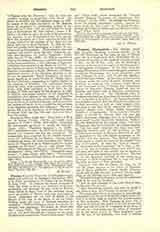

Champs, ETIENNE AGARD DE, a distinguished theologian and author, b. at Bourges, September 2, 1613; d. at Paris (according to De Backer, at La Fleche), July 31, 1701. He entered the Jesuit novitiate in 1630, and later, in Paris, was professor of rhetoric, philosophy, and theology; he was rector at Rennes, thrice rector at Paris, head of the professed house, twice provincial of France, and once provincial of Lyons. Jansenism, the one topic of debate in the France of his day, is the theme of all his books.
Writing under the name of Richard Antonills, he composed: “Defensio Censure Sacrae Facultatis Parisiensis—seu Disputatio Theologica de libero arbitrio” (Paris, 1645). This solid treatise was well received, and went through five editions in two years. It called forth a reply from Vincent Lenis in his “Theriaca” (Paris, 1648), which occasioned the “Antonii Ricardi Theologi Responsio ad objectiones Vincentianas” (Paris, 1648). He defends the Sorbonne in his “De Haeresi Janseniana,” (1654). Among his other works the best known is “Le secret du Jansenisme decouvert et refute par un Docteur Catholique” (Paris, 1651).
LEO F. O’NEIL

